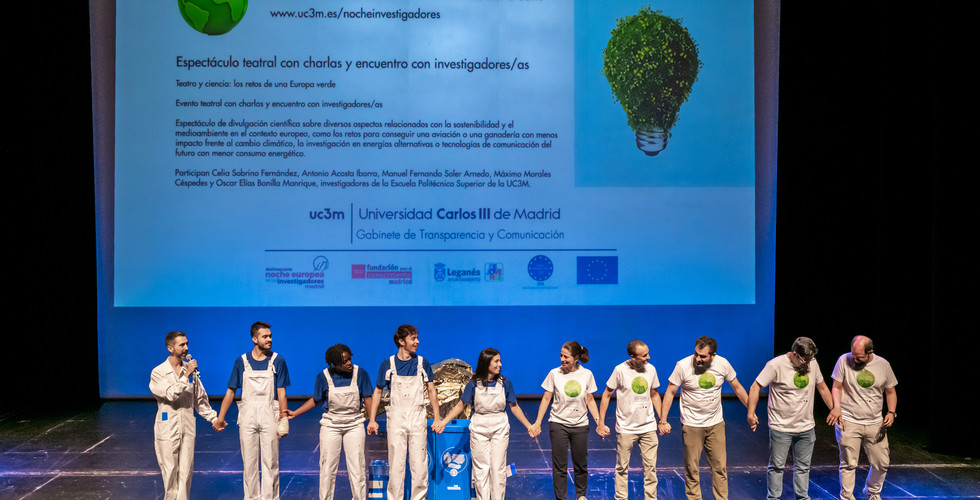E-CONTRAIL at the European Researchers' Night
- VIRGINIA VILLAPLANA FERNANDEZ
- Sep 30, 2023
- 2 min read
Updated: Dec 27, 2023

On September 29 and 30, the Carlos III University of Madrid presented a captivating program of scientific outreach activities as part of the 14th edition of the European Researchers' Night, a continent-wide event designed to engage audiences of all ages in the wonders of scientific exploration.
Manuel Soler, coordinator of the E-CONTRAIL project, participated in the event on Friday, September 29, from 11:15 to 12:45 with a scientific outreach show that will unfold at the UC3M Auditorium on the Leganés Campus (Leganés, Madrid)
Tailored primarily for Secondary Education Centers, this event seamlessly blended theatrical scenes with enlightening talks by researchers, all centered around scientific projects. Its primary objective is to contribute to scientific dissemination on various aspects related to sustainability and the environment in the European context, such as the challenges to achieve aviation or livestock farming with less impact on climate change, research in alternative energies or communication technologies of the future with less energy consumption.
Manuel Soler's presentation focused on the transformations needed in the aviation sector to mitigate its contribution to climate change. This involves addressing both CO2 and non-CO2 emissions, including water vapor, nitrogen oxides and contrail formation. One of the key strategies is to reduce the climate impact generated by the formation of high-altitude linear clouds known as contrails. This is achieved by rerouting aircraft away from the regions of the atmosphere most prone to contrail formation. However, it is imperative to understand the conditions under which contrails form and their environmental impact, since under certain conditions, condensation trails can even contribute to cooling the planet.
These intriguing aspects of aviation-induced climate impact are being deeply investigated as part of the E-CONTRAIL project. Our pioneering research combines satellite data, cutting-edge AI techniques and climatology to better understand the role of aviation in climate change and develop mitigation strategies.











Comments